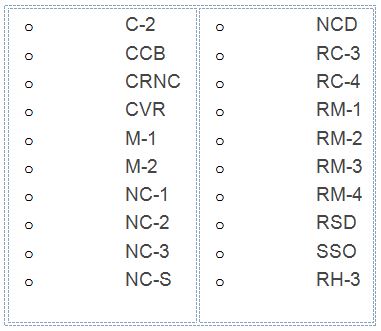On August 21, 2015, we introduced the Planning Department’s Affordable Housing Bonus Program implementing the State’s density bonus law. [Density Bonus Program Unveiled]. The Program was formally introduced on September 29, 2015, and could be adopted before the end of 2015.
The Local Affordable Housing Bonus Program would provide an incentive for project sponsors to set aside a total of 30% of residential units for onsite below-market-rate units to low- and moderate-income households. The most appealing benefit of the program is that it would allow projects to add an additional two stories above current height limits and remove density constraints. The City hopes that this will increase the number of affordable housing units, allow development of underutilized sites, and expand affordable housing for the middle income families that are increasingly squeezed out of the San Francisco housing market.
The program would apply to projects with 3 or more non-density bonus residential units in the following zoning districts:

To be eligible for the Local Affordable Housing Bonus Program, project sponsors must set aside a total of 30% of units onsite for low to moderate-income and middle-income households. For a project with 9 or fewer units, 30% of units must be affordable to middle-income households, defined as 120% of AMI for rental housing and 140% of AMI for ownership housing. For a project with 10 or more units, 18% of units must be affordable to middle-income households and 12% must be affordable to very low, low, and moderate income households as currently required under the City’s Inclusionary Affordable Housing Program. In addition, the overall project must provide at least 40% of all units as two bedroom units or larger, or any unit mix such that 50% of all bedrooms are provided in units with more than one bedroom.
A project sponsor that qualifies may receive any or all of the following benefits:
Form-based density. The density of an eligible project shall not be limited by lot area.
Height. An eligible project may be built up to 20 feet above existing height limits.
Ground Floor Ceiling Height. An eligible project may receive up to an additional 5 feet in height at the ground floor to provide at least a 14-foot ground floor ceiling height.
Zoning Modifications. An eligible project may use up to 3 of the following:
Rear yard- reduction to 20% of lot depth or 15 feet, whichever is greater, with corner properties permitted to provide 20% of the lot area at the interior corner of the property as rear yard.
Dwelling Unit Exposure- may be satisfied with windows facing an open area is at least 25 feet by 25 feet.
Off-Street Loading – not required.
Parking- up to a 75% reduction in residential and commercial parking requirements.
Open Space- up to a 5% reduction in common open space.
Additional Open Space – up to an additional 5% reduction in common open space beyond the first 5% reduction.
Also included in the pending legislation is the 100 Percent Affordable Housing Bonus Program (which provides for up to three additional stories of development). In addition, projects not in the zoning districts covered by the Local Affordable Housing Bonus Program can still take advantage of the State Density Bonus Program, as described in our August 21 update. However, that program would subject them to a complicated scheme providing for a maximum density bonus of 35% and an additional two stories of height only where needed to achieve the density.
It remains to be seen how much the Local Affordable Housing Bonus Program will impact projects in San Francisco, which are constrained not only by other provisions such as historic review and limitation on new shadows, but also political considerations in a city that in most areas has yet to embrace significant increases in building height, despite the ongoing housing crises.
The program is expected to be heard by the Planning Commission on November 5, after which it will be heard by the Land Use and Transportation Committee and then the full Board of Supervisors.
The issues discussed in this update are not intended to be legal advice and no attorney-client relationship is established with the recipient. Readers should consult with legal counsel before relying on any of the information contained herein. Reuben, Junius & Rose, LLP is a full service real estate law firm. We specialize in land use, development and entitlement law. We also provide a wide range of transactional services, including leasing, acquisitions and sales, formation of limited liability companies and other entities, lending/workout assistance, subdivision and condominium work.

